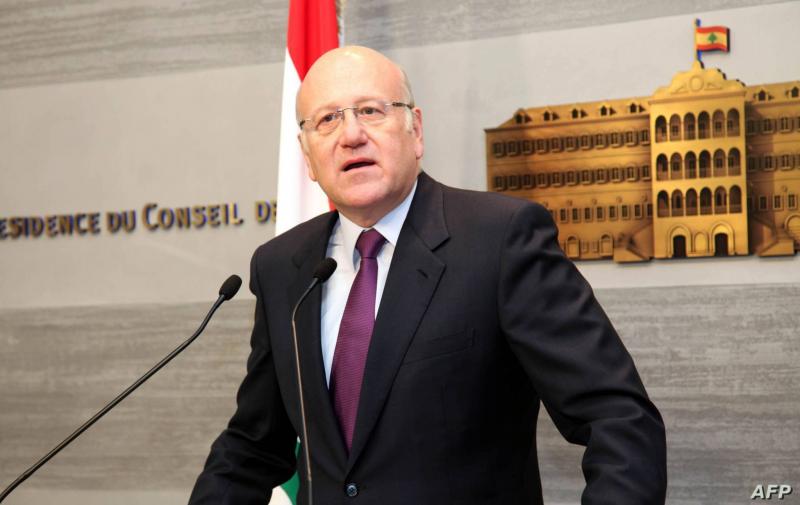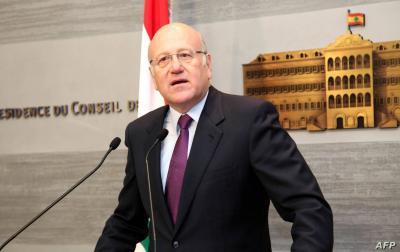The caretaker Prime Minister Najib Mikati welcomed the statement issued by the leaders of France, the United States, the United Kingdom, and Germany yesterday, which "emphasized the necessity of maintaining stability in Lebanon and uniting their efforts to help reduce tensions along the Blue Line, in accordance with UN Resolution 1701." Mikati highly valued this supportive stance towards Lebanon, calling for all efforts to stop the escalation, stating that "our priority is to communicate with Lebanon's friends worldwide and decision-making countries to curb the escalation and halt the Israeli aggression on southern Lebanon."
He pointed out that "Lebanese diplomatic communications have spared Lebanon, on numerous occasions, the dangers of Israeli plans to expand the war, not only towards Lebanon but also at the regional level. This approach was reflected in the statement from the four countries emphasizing the need to work to avoid regional escalation."
The Prime Minister chaired a meeting that included Minister of Energy and Water Walid Fayyad, the World Bank's Regional Director for the Middle East Jean-Christophe Karp, the General Director of Electricité du Liban Kamal Hayek, and the Prime Minister's advisors Nicolas Nahas and Samir Al-Daher.
After the meeting, Fayyad clarified that "we discussed the progress of the loan program that the World Bank is working on in the energy and renewable energy sector specifically. This program has requirements, and we reviewed the progress made, as well as issues related to auditing and legal matters, including the mechanism and coverage plan for costs established by Electricité du Liban in cooperation with the World Bank. This program is promising; there’s about $250 million in investment from the World Bank in the renewable energy sector and the strengthening of Electricité du Liban, including a remote control center and institutional support for the electricity company."
He added, "We informed Mikati that he received the text of the letter I sent him in response to the message from the companies 'Total Energies' and 'Qatar Energy' regarding the renewable energy plant with a capacity of about 100 megawatts, where we proposed a legal solution to expedite the implementation of this project to enable the companies to invest in building the plant. Prime Minister Mikati sent them the letter as per the proposal from the Ministry of Energy, and we now hope that both the Qatari and French sides will respond positively. Prime Minister Mikati also updated me on my visit to Syria, and he welcomed it; we await developments in this file."
In response to a question about increasing electricity supply, he said: "There is an increase in electricity supply. Electricité du Liban is working with the Deir Ammar and Zahrani plants, producing approximately 450 megawatts, and now the production will rise in mid-June to around 600 megawatts, meaning there will be additional supply hours. Given that we are in the summer and heat, demands will increase due to the use of air conditioning, leading to a higher need for electricity. This action allows us to maintain the existing supply system and cannot provide more because the needs everywhere will be greater than in the spring, hence it allows us to sustain the current supply system, and we are also working to purchase fuel, and the institution has the necessary funds to further increase supply."




